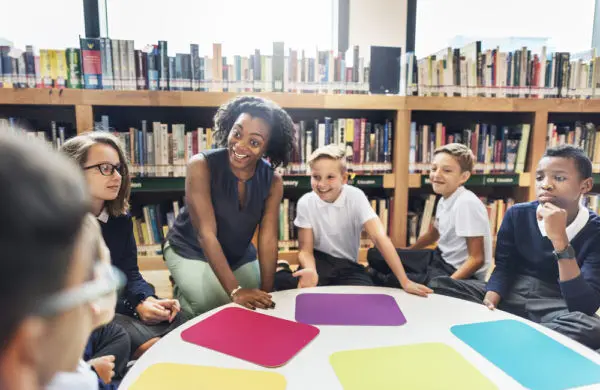Classrooms bring together students with a variety of backgrounds and learning abilities. Part of success as an educator involves devising effective teaching strategies that allow them to meet the needs of every individual student in the classroom.
Experienced teachers know that there’s no all-encompassing, universal solution for every child. Rather, teachers must familiarize themselves with innovative teaching strategies and determine what works best with each student. Becoming familiar with these options is one of the many benefits of earning an online master’s degree in education.
Three Innovative Classroom Teaching Strategies
Through experience and research, educators have developed classroom teaching strategies that support students in improving their learning abilities and narrowing the achievement gap between students. These strategies typically fall into one of the following three focus areas.
Interactive Learning
Traditional, passive learning requires students to listen to a lecture, take notes and rely on rote memorization of information, figures, and equations. Interactive learning provides a far more hands-on approach, inviting students to participate in the conversation and take a more active role in their own education.
An example of this comes from Cochrane Collegiate Academy in Charlotte, N.C. Teachers follow an interactive learning plan containing best practices that school administrators and teachers call “non-negotiables.” They include an essential question for each lesson, activating strategy, relevant vocabulary, limited lecture time, student movement, and student-centered lessons. In three years of using interactive learning, the school has doubled student performance.
Inquiry-Based Instruction
Teachers can support the development of independent, practical learners by encouraging students to ask thought-provoking questions in class. Educators often put this effective teaching strategy to work as part of a science or math curriculum where answers are concrete. However, it works equally well on more subjective topics where students can express their opinions. For example, students can discuss school-related issues such as whether all students should wear uniforms.
Putting inquiry-based instruction into action allows students to develop their own questions and then work together to solve them, placing students at the center of the learning process. This approach also can help students more easily retain new concepts.
Technology in the Classroom
The current generation of students grew up with technology, making the incorporation of technology in the classroom easier to accomplish. Teachers can use interactive whiteboards or mobile devices for presentations that help students visualize new concepts. Teachers can use tablets to record results or take photos and videos.
Technology also offers a wider choice for educational games that allow students to solve questions and puzzles even as they compete against their peers. Teachers also have technology tools available to help students learn online.
A Master of Education Program
Developing effective classroom teaching strategies is difficult because every student is unique. Most teachers succeed through trial and error, combining these strategies based on the situation and the student. Eventually, they become adept at finding ways to help students better learn and retain information.
Merrimack College’s online Master of Education program can help teachers learn and successfully implement these teaching strategies and many more to further their teaching careers.
The program, which educators can complete in about 18 months, also allows teachers the choice of specialization. They include:
- M.Ed. in Curriculum & Instruction
- M.Ed. in Early Childhood Education
- M.Ed. in Elementary Education
- M.Ed. in Secondary Education
- M.Ed. in English as a Second Language (Pre-K-6)
- M.Ed. in Moderate Disabilities (Pre-K-8)
Graduates also are prepared for the Massachusetts Tests for Educator Licensure. Earning a master’s degree allows teachers to fulfill their career aspirations and take the next step toward reaching the top tiers of the teaching profession.
